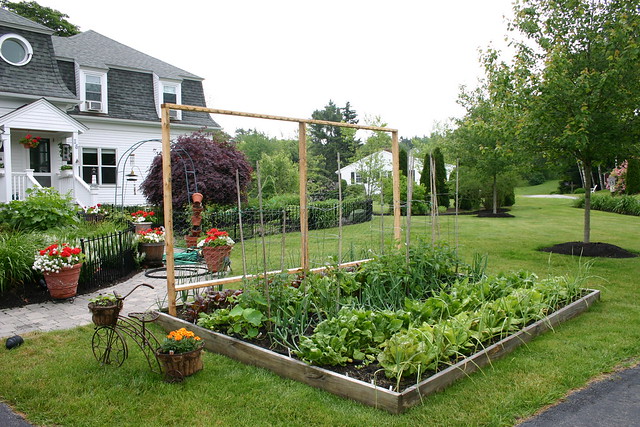Food security: Would HOAs allow self-sustainable solutions?

Global food and fuel prices caused by the war in Ukraine, supply bottlenecks in China and adverse climate conditions have the world on the brink of a food crisis, according to many commentators. Unsurprisingly, many families are now considering ways in which they can become self-sufficient when it comes to food. Omar Kinnear, developer of web-based communications portal, ResidentPortal, wonders whether, and to what extent this could this play out in Home Owners Associations.
Although Agriculture Minister Thoko Didiza has assured South Africans that there will be no food shortages here, Kinnear believes there is likely to be a trend towards self-sustainable alternatives to shop-bought food as prices start to bite.
“There’s already a growing trend towards moving off the grid, even without this month’s IMF warning of a tough 2022 and possibly an even tougher 2023 with increased risk of recession,” he says. “Perhaps it’s time to grow similarly independent when it comes to food.”
He warns, however, that while solar electricity and rainwater tanks are becoming commonplace in HOAs, it’s unlikely that governing boards will soon allow, for example, keeping chickens for eggs and growing vegetable gardens on pavements for use by residents.
But this hasn’t stopped residents within HOAs wondering if this could be possible if the global food crisis worsens.
No one-size-fits-all
Auren Freitas dos Santos, founder and director of The Advisory, which specialises in legal advice on issues arising in community schemes, says the topic must be viewed from a legal compliance perspective.
“The circumstances of every HOA is unique and the provisions of their respective governance documentation differ greatly, so there is no one size fits all response to this question,” he says.
“My advice would be to first consult the applicable local Municipal By-laws which regulate the keeping of livestock to establish whether residents would be permitted to keep chickens in their yards.
“The next step would be to implement estate rules, in line with the governance documentation of the HOA, aimed at regulating these sustainable practices, for example rules which regulate issues like noise, aesthetics and cleanliness.”
Growing own vegetables a good start
Irrespective of planning for worst-case scenarios, Kinnear believes that starting to grow vegetables at home is a good idea. “Whether you live on a large freehold property in an estate or tiny unit in a sectional title complex, with a bit of knowledge and trying and testing, it is possible to eat from your own home-grown vegetables,” he says.
“Not only will it save on your food bills, it’s also a really satisfying activity that the whole family can enjoy.”
ABOUT ResidentPortal
ResidentPortal is developed and managed by Sandton-based software consulting and development company, Business Xponent Solutions (BXS). The estate communication platform is one of the products emerging from 20 years of experience in the software industry of its founder, Omar Kinnear. One of the original developers of the SARS eFiling platform, Kinnear brings to ResidentPortal a wealth of knowledge of system performance and security.
Since 2016, around 100 complexes are using the Free Plan of ResidentPortal, and over 1000 residents, mostly in and around Gauteng, are benefiting from the way the full-featured Standard and Pro packages are simplifying their lives in their estates and complexes.
For more information, contact: Omar Kinnear, 078 798 3378


Sorry, the comment form is closed at this time.